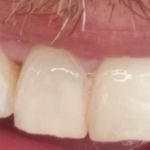What Are Mouth Ulcers?
A mouth ulcer is the loss or erosion of the delicate lining tissue of the mouth (mucous membrane). The most common cause is injury, such as accidentally biting the inside of your cheek. Aphthous ulcers are recurring ulcers with no known cause that affect around 20 per cent of the population. Mouth ulcers can be of various types, including canker sores, oral lichen planus, leukoplakia, erythroplakia, oral thrush, and even oral cancer lesions. It's important to be aware of the different types and their characteristics.
Causes of Mouth Ulcers
Mouth ulcers can be caused by a variety of factors. Minor tissue injury from dental work, accidentally biting the cheek or tongue, allergic reactions, wearing braces or retainers, using harsh toothpaste, eating acidic foods, hormonal changes during the period, stress, lack of sleep, and underlying health conditions like vitamin deficiencies, viral, bacterial or fungal infections, Crohn's disease, celiac disease, reactive arthritis, lupus, and Behçet's disease can all contribute to the development of mouth ulcers.
Symptoms of Mouth Ulcers
Mouth ulcers are usually easy to spot. They appear as sores on the gums, tongue, inner cheeks, inner lips or roof of the mouth. The sores are typically red around the edges and white, yellow or gray in the center. Other symptoms may include swelling around the ulcers, increased soreness when brushing the teeth, and pain that worsens when eating spicy, salty or sour foods.
When to Seek Treatment for Mouth Ulcers
If mouth ulcers don't clear up after 14 days, or if you get them frequently, it's advisable to see your dentist or doctor. In cases where there is suspected underlying deficiency or an inflammatory medical condition, or if a biopsy is necessary for diagnosis, seeking professional help is crucial.
Treatment for Mouth Ulcers
Most mouth ulcers heal on their own, but medications may be prescribed to ease discomfort. Common treatments include antiseptic gels or mouth rinses, steroid ointments, and immunosuppressants in severe cases. At home, you can do several things to relieve symptoms, such as drinking plenty of water, maintaining good oral hygiene, rinsing the mouth with warm saltwater, using a hydrogen peroxide and water mixture, avoiding hot and spicy foods, and using over-the-counter topical anesthetics.
Prevention of Mouth Ulcers
Although it's impossible to prevent mouth ulcers completely, there are measures you can take to reduce the risk. Brushing your teeth twice daily and flossing once daily, using a soft-bristled toothbrush, eating a healthy diet rich in fresh fruits and vegetables, visiting the dentist regularly for checkups and cleanings, and treating underlying conditions that cause sores can all help. If your provider thinks you have an underlying condition that causes sores, managing that condition can reduce the risk of ulcers returning.
Conclusion
Stressful periods can put your oral health at risk, increasing the likelihood of developing mouth ulcers. However, by being aware of the causes, symptoms, and prevention strategies, you can take proactive steps to protect your mouth. Maintaining good oral hygiene, a balanced diet, and managing stress are key elements in preventing mouth ulcers. If you experience persistent or severe mouth ulcers, it's essential to consult a healthcare provider for appropriate diagnosis and treatment. Remember, a healthy mouth contributes to your overall well-being and quality of life.




 Maui Whitening Orlando4.0 (32 review)
Maui Whitening Orlando4.0 (32 review) Bloomington Southside Dental Care3.0 (26 review)
Bloomington Southside Dental Care3.0 (26 review) Christiana Dental Center4.0 (650 review)
Christiana Dental Center4.0 (650 review) Carolina Dental Arts - New Bern Ave4.0 (152 review)
Carolina Dental Arts - New Bern Ave4.0 (152 review) Equitas Health Short North Medical Center3.0 (96 review)
Equitas Health Short North Medical Center3.0 (96 review) Prosthodontics of Madison - Kendra Schaefer, DMD & Christine Roenitz, DMD4.0 (25 review)
Prosthodontics of Madison - Kendra Schaefer, DMD & Christine Roenitz, DMD4.0 (25 review) The Importance of Oral Health Education During Pregnancy for a Healthy Pregnancy
The Importance of Oral Health Education During Pregnancy for a Healthy Pregnancy Best Tips for Brushing Your Teeth Properly for Healthy Gums: Essential Techniques for Oral Health
Best Tips for Brushing Your Teeth Properly for Healthy Gums: Essential Techniques for Oral Health Why Skipping Dental Checkups Can Lead to Bigger Oral Health Problems
Why Skipping Dental Checkups Can Lead to Bigger Oral Health Problems Advantages of Porcelain Dental Restorations
Advantages of Porcelain Dental Restorations How Can Diabetes Cause Tooth and Gum Problems? Preventing and Managing Oral Health Issues
How Can Diabetes Cause Tooth and Gum Problems? Preventing and Managing Oral Health Issues Healthy Habits for Promoting Good Oral Health and Hygiene: Tips for a Healthy Smile
Healthy Habits for Promoting Good Oral Health and Hygiene: Tips for a Healthy Smile